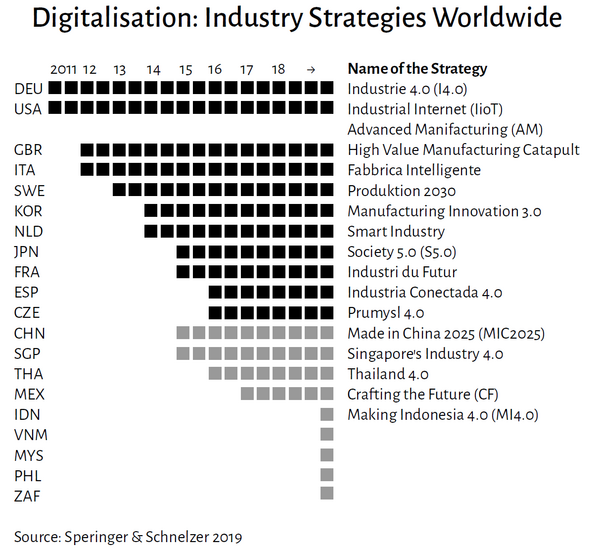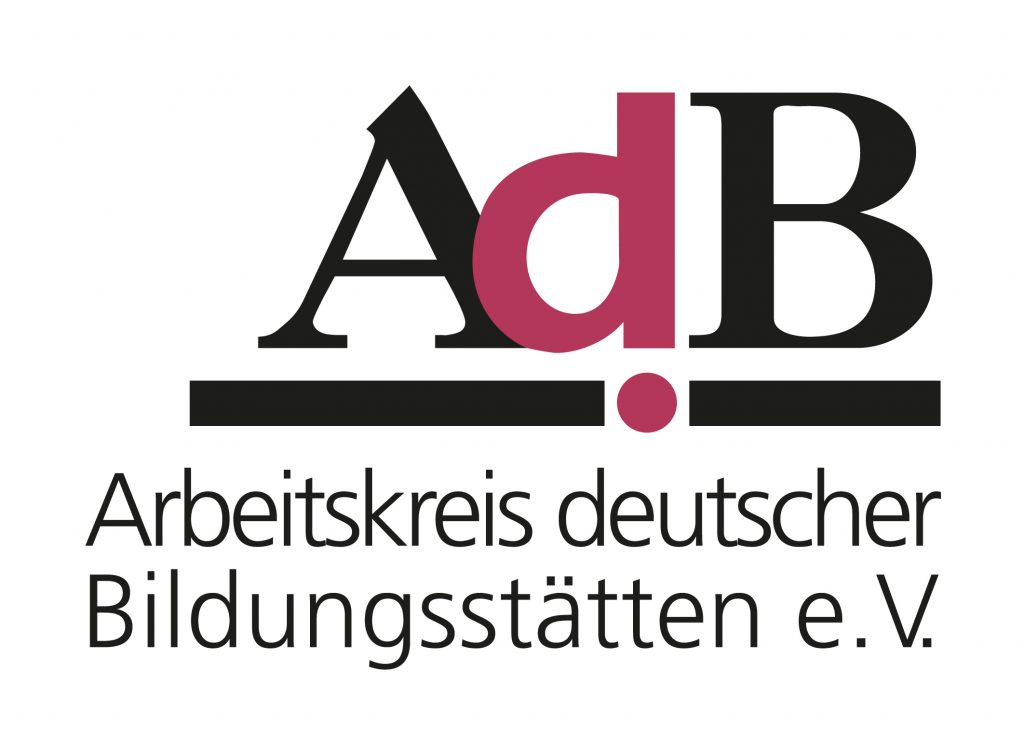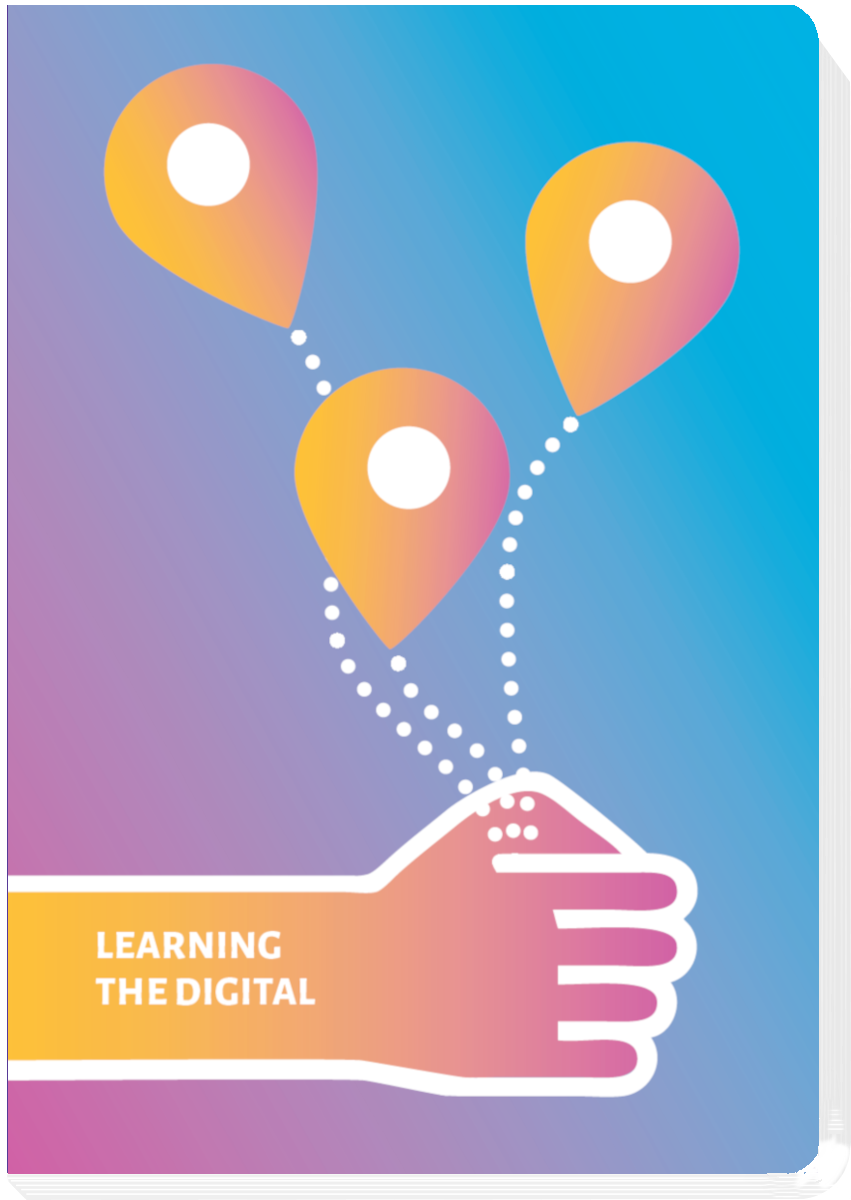In Europe, the terminology has become a sort of mantra of economic policies and strategies, ensuring and securing the basis for economic leadership. Speringer and Schnelzer (2019), in their study on Industry 4.0 strategies, demonstrate that the story of global competitiveness in new industry models is questionable and must be reflected on, in order to not perpetuate market dominant narratives of well-developed countries.
Contents
Goals
- Exploring and understanding from an economic perspective the aspect of competitiveness as a dominant priority of political strategies in regards to the digital economy within the EU.
- Exploring and understanding how these have impact the dominance of economic power on a global scale is explored below.
Steps
1. Explore the concept of the four industrial revolutions, maybe by including sources from your national context.
The Four Industrial Revolutions
First Industrial Revolution: (steam-powered) machine production.
Second Industrial Revolution: technological revolution through transport and communication networks and increasing electrification.
Third Industrial Revolution: Digital revolution by the introduction of computing.
Fourth Industrial Revolution: Coined by the World Economic Forum chair Klaus Schwab: “a fusion of technologies that blurs the lines between the physical, digital, and biological spheres” by broadly networked and platformed computing and application of AI.
2. Many countries have set up initiatives to foster the adoption of Industry 4.0 technologies in Europe but also other parts of the world, like South Korea and South Africa.
3. Think with your group about development chances and the goals of such strategies.
4. Since the idea of a participatory and democratic governance of digitalisation seeks to ensure global fairness and shared benefit, compare this assessment with the ROAM-X principles. You may use additional maps that investigate factors of full enjoyment of digitalisation on a global scale:
UNESCO Internet Universality Indicators
Reflecting on the Internet and the universality of human rights (UNESCO, 2019). UNESCO’s Internet Universality Indicators are a set of 303 indicators that aim to assess the state of internet development at the national level according to the so-called ROAM-X principles.These principles enable us to check the provision of the following five dimensions as reflective tools to the enactment of human rights on the Internet:
- Rights
- Openness
- Accessibility to all
- Multi-stakeholder participation
- Cross-cutting indicators: gender, children, sustainability, etc.
ROAM-X indicators reflect the universality of the internet as a cultural good and universal infrastructure where human rights continue to apply and must be ensured, enacted and maintained. The indicators mirror the diverse regulation and legal instruments of the state and of all parties involved in the Internet. They also help to monitor whether the provision of the Internet follows benchmarks such as support of sustainable development, respect of human rights, inclusiveness and involvement of all stakeholders according to their needs.
Reflection
- What if the opportunities provided benefit only certain societies?
- What if starting positions are unequally distributed?
- How are goals and aims of global education for democratic citizenship relevant here?
- Does digital transformation offer tools to counteract the replication of global injustices?
Reference
- Speringer, M.,Schnelzer, J. (2019), Differentiation of Industry 4.0 Models. The 4th Industrial Revolution from different Regional Perspectives in the Global North and Global South, In: Regional Academy on the United Nations (RAUN) (Eds.) 2019. Innovations for Development: Towards Sustainable, Inclusive, and Peaceful Societies. Vienna. https://doi.org/10.13140/RG.2.2.35510.55363; accessible also at: https://www.ra-un.org/publications.
- Klaus Schwab: The Fourth Industrial Revolution: what it means, how to respond
Georg Pirker
Person responsible for international relations at the Association of German Educational Organizations (AdB), president of DARE network.







